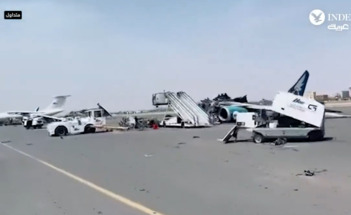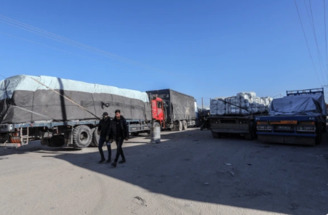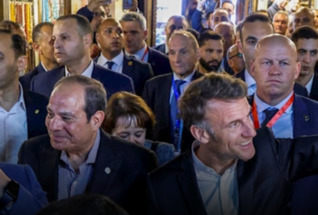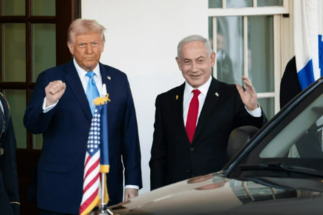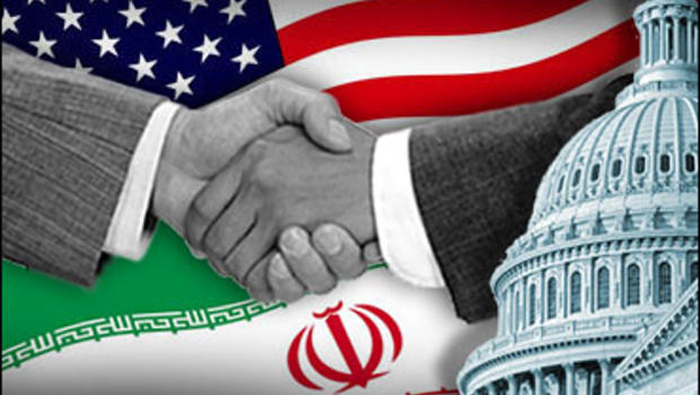-
France pushing for energy sanctions to target Russian oil and coal
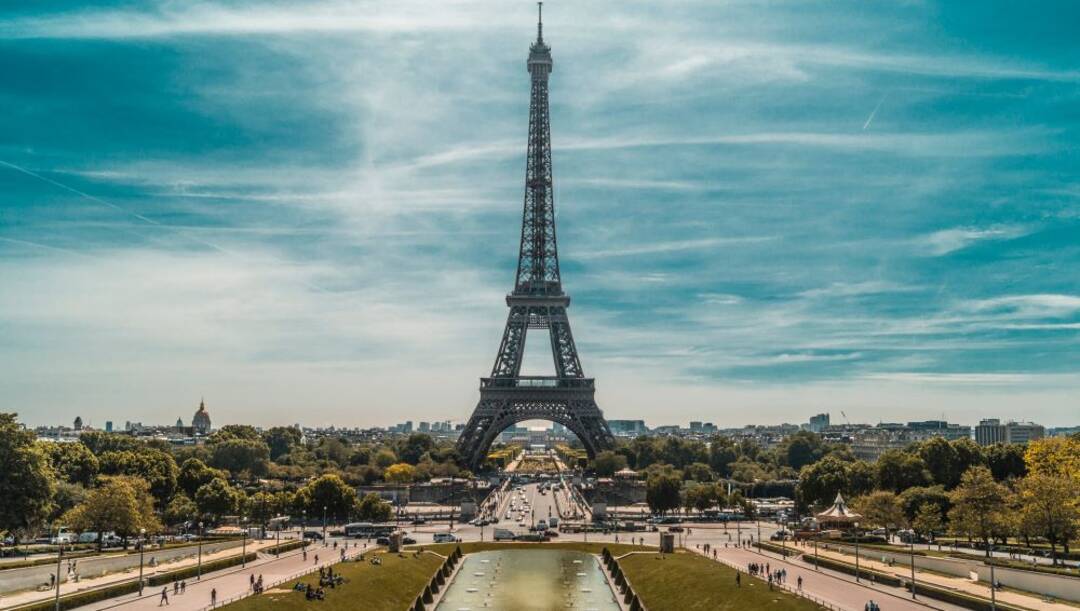
The Arab News reported, citing the Associated Press, rench Finance Minister Bruno Le Maire said Tuesday (5 Apr) that there is a “total determination” from all 27 European Union countries for sanctions against Russia that could target oil and coal over evidence its troops deliberately killed Ukrainian civilians.
Europe’s dependence on Russian oil, gas and coal means finding unanimity on energy measures is a tall order, but the reports of the killings outside Kyiv have increased pressure for tougher EU sanctions.
So far, Europe has not been willing to target Russian energy over fears that it would plunge the European economy into recession. In some ways, it would be easier for Europe to go without Russian oil than gas because most supplies come by tanker and could be purchased from other suppliers. But talk of a possible boycott of Russian oil has helped push up global oil prices this week.
Asked whether there was a political willingness to impose sanctions on Russian oil and coal — a move suggested this week by French President Emmanuel Macron — Le Maire said: “We will see what the position of the other member states will be, but I think there is a possibility to have unity on the 27 member states on these new sanctions.”
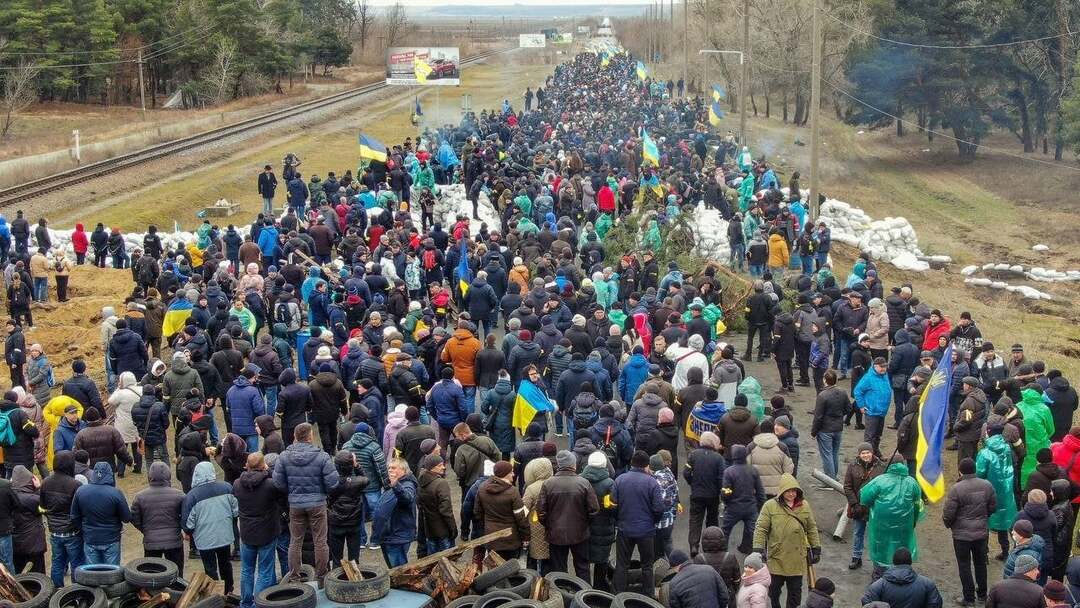
He did not mention natural gas, and a consensus on targeting the fuel that is used to generate electricity and heat homes would be even more difficult to secure. The EU gets about 40 percent of its natural gas from Russia and many EU countries, including Germany — the bloc’s largest economy — are opposed to cutting off gas imports.
France holds the presidency of the EU Council, and Le Maire spoke ahead of a meeting of EU finance ministers in Luxembourg, where they will discuss possible new measures to punish the Kremlin.
While the EU has stayed away from sanctioning Russian energy so far, individual countries have announced efforts to draw down their reliance: Poland said it plans to block imports of coal and oil from Russia, while Lithuania said it’s no longer using Russian natural gas.
Volodymyr Zelensky to address UN Security Council over Russian ‘genocide’ in town of Bucha
The European Union gets about 25 percent of its oil from Russia, while the EU imported 53 percent of hard coal from the country in 2020, which accounted for 30 percent of the EU’s hard coal consumption.
While coal and oil may be up for discussion, Teresa Ribera, Spain’s Minister for Ecological Transition, said Tuesday that it is “very hard” for the EU to sanction Russian natural gas because some of the bloc’s countries are dependent on it for their energy supply and that the EU’s strength lies in its unity.
“It is very difficult to explain to European public opinion and Ukrainian society that we are still importing Russian energy that finances this war,” she said, adding that energy imports create “obvious moral tension.”
Ukraine says seven humanitarian corridors planned for evacuations on Saturday
European importers pay about $850 million per day for Russian oil and natural gas.
Russian natural gas mostly comes by fixed pipeline and would be harder to replace suddenly with shipments of expensive and scarce liquefied natural gas. While oil might be easier to cut off than gas, ditching it would not be without consequences.
For one, the resulting price increases for other oil could increase the incentive for India and China, who aren’t taking part in Western sanctions, to buy cheaper Russian crude. Russia is also a major supplier of diesel fuel; if that supply were lost, operating diesel-powered trucks and farm equipment could quickly become more expensive, fueling already high inflation in Europe.
Commodities analysts at German bank Commerzbank said, oil prices rose as buyers seeking to avoid Russian oil bid for limited supply from other producers like Saudi Arabia.
International benchmark Brent rose 3 percent on Monday and traded Tuesday above $108 per barrel, up another 1 percent. US crude rose 1.1 percent to $104.37 on Tuesday. Crude prices had fallen after US President Joe Biden last week announced the release of 180 million barrels of oil over six months from strategic reserves. Higher oil prices mean more expensive gasoline for US drivers.
London marine insurers extend high-risk area to all Russian waters
The next package of EU sanctions will be prepared by the EU’s executive arm, the European Commission, which will then present it to EU countries for approval.
Source: arabnews
You May Also Like
Popular Posts
Caricature
BENEFIT AGM approves 10%...
- March 27, 2025
BENEFIT, the Kingdom’s innovator and leading company in Fintech and electronic financial transactions service, held its Annual General Meeting (AGM) at the company’s headquarters in the Seef District.
During the meeting, shareholders approved all items listed on the agenda, including the ratification of the minutes of the previous AGM held on 26 March 2024. The session reviewed and approved the Board’s Annual Report on the company’s activities and financial performance for the fiscal year ended 31 December 2024, and the shareholders expressed their satisfaction with the company’s operational and financial results during the reporting period.
The meeting also reviewed the Independent External Auditor’s Report on the company’s consolidated financial statements for the year ended 31 December 2024. Subsequently, the shareholders approved the audited financial statements for the fiscal year. Based on the Board’s recommendation, the shareholders approved the distribution of a cash dividend equivalent to 10% of the paid-up share capital.
Furthermore, the shareholders endorsed the allocation of a total amount of BD 172,500 as remuneration to the members of the Board for the year ended 31 December 2024, subject to prior clearance by related authorities.
The extension of the current composition of the Board was approved, which includes ten members and one CBB observer, for a further six-month term, expiring in September 2025, pending no objection from the CBB.
The meeting reviewed and approved the Corporate Governance Report for 2024, which affirmed the company’s full compliance with the corporate governance directives issued by the CBB and other applicable regulatory frameworks. The AGM absolved the Board Members of liability for any of their actions during the year ending on 31st December 2024, in accordance with the Commercial Companies Law.
In alignment with regulatory requirements, the session approved the reappointment of Ernst & Young (EY) as the company’s External Auditors for the fiscal year 2025, covering both the parent company and its subsidiaries—Sinnad and Bahrain FinTech Bay. The Board was authorised to determine the external auditors’ professional fees, subject to approval from the CBB, and the meeting concluded with a discussion of any additional issues as per Article (207) of the Commercial Companies Law.
Speaking on the company’s performance, Mr. Mohamed Al Bastaki, Chairman BENEFIT , stated: “In terms of the financial results for 2024, I am pleased to say that the year gone by has also been proved to be a success in delivering tangible results. Growth rate for 2024 was 19 per cent. Revenue for the year was BD 17 M (US$ 45.3 Million) and net profit was 2 Million ($ 5.3 Million).
Mr. Al Bastaki also announced that the Board had formally adopted a new three-year strategic roadmap to commence in 2025. The strategy encompasses a phased international expansion, optimisation of internal operations, enhanced revenue diversification, long-term sustainability initiatives, and the advancement of innovation and digital transformation initiatives across all service lines.
“I extend my sincere appreciation to the CBB for its continued support of BENEFIT and its pivotal role in fostering a stable and progressive regulatory environment for the Kingdom’s banking and financial sector—an environment that has significantly reinforced Bahrain’s standing as a leading financial hub in the region,” said Mr. Al Bastaki. “I would also like to thank our partner banks and valued customers for their trust, and our shareholders for their ongoing encouragement. The achievements of 2024 set a strong precedent, and I am confident they will serve as a foundation for yet another successful and impactful year ahead.”
Chief Executive of BENEFIT; Mr. Abdulwahed AlJanahi commented, “The year 2024 represented another pivotal chapter in BENEFIT ’s evolution. We achieved substantial progress in advancing our digital strategy across multiple sectors, while reinforcing our long-term commitment to the development of Bahrain’s financial services and payments landscape. Throughout the year, we remained firmly aligned with our objective of delivering measurable value to our shareholders, strategic partners, and customers. At the same time, we continued to play an active role in enabling Bahrain’s digital economy by introducing innovative solutions and service enhancements that directly address market needs and future opportunities.”
Mr. AlJanahi affirmed that BENEFIT has successfully developed a robust and well-integrated payment network that connects individuals and businesses across Bahrain, accelerating the adoption of emerging technologies in the banking and financial services sector and reinforcing Bahrain’s position as a growing fintech hub, and added, “Our achievements of the past year reflect a long-term vision to establish a resilient electronic payment infrastructure that supports the Kingdom’s digital economy. Key developments in 2024 included the implementation of central authentication for open banking via BENEFIT Pay”
Mr. AlJanahi concluded by thanking the Board for its strategic direction, the company’s staff for their continued dedication, and the Central Bank of Bahrain, member banks, and shareholders for their valuable partnership and confidence in the company’s long-term vision.
opinion
Report
ads
Newsletter
Subscribe to our mailing list to get the new updates!

